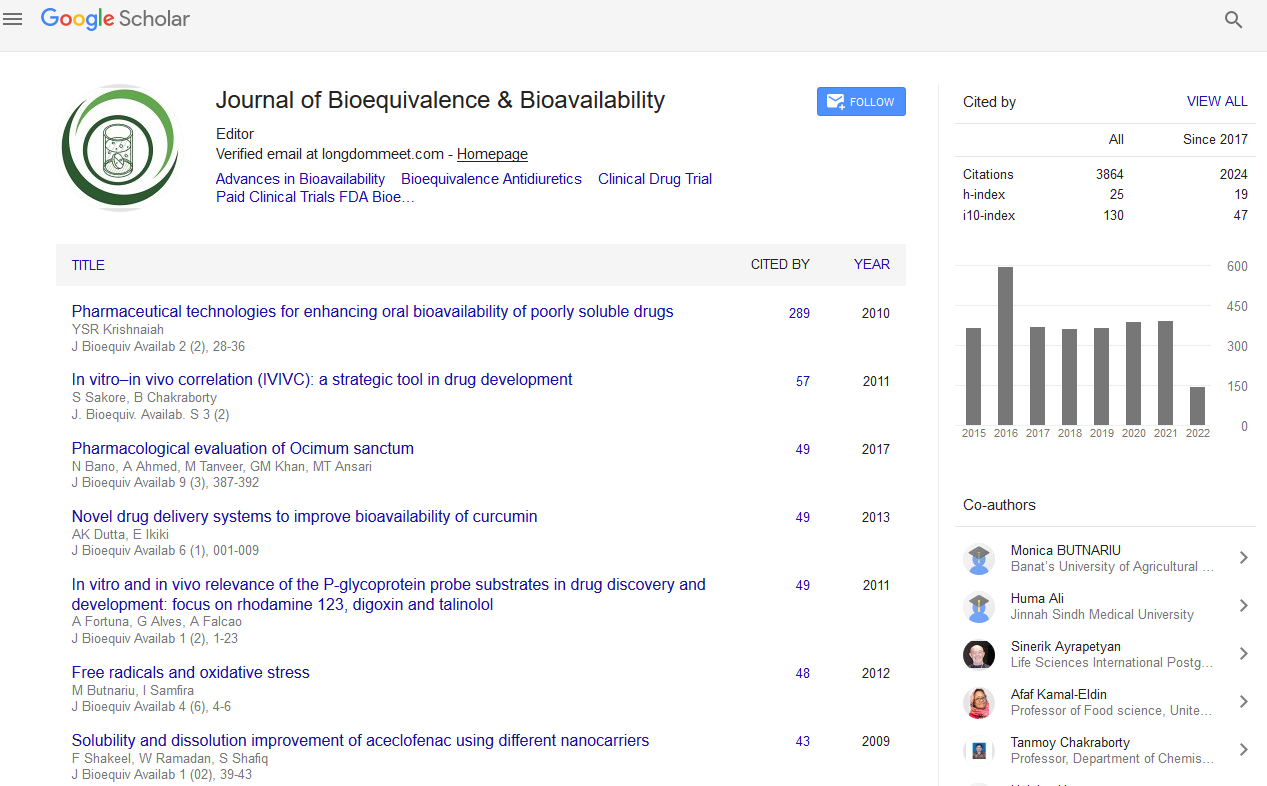PMC/PubMed Indexed Articles
Indexed In
- Academic Journals Database
- Open J Gate
- Genamics JournalSeek
- Academic Keys
- JournalTOCs
- China National Knowledge Infrastructure (CNKI)
- CiteFactor
- Scimago
- Ulrich's Periodicals Directory
- Electronic Journals Library
- RefSeek
- Hamdard University
- EBSCO A-Z
- OCLC- WorldCat
- SWB online catalog
- Virtual Library of Biology (vifabio)
- Publons
- MIAR
- University Grants Commission
- Geneva Foundation for Medical Education and Research
- Euro Pub
- Google Scholar
Useful Links
Share This Page
Journal Flyer

Open Access Journals
- Agri and Aquaculture
- Biochemistry
- Bioinformatics & Systems Biology
- Business & Management
- Chemistry
- Clinical Sciences
- Engineering
- Food & Nutrition
- General Science
- Genetics & Molecular Biology
- Immunology & Microbiology
- Medical Sciences
- Neuroscience & Psychology
- Nursing & Health Care
- Pharmaceutical Sciences
Kudor-Szabadi L
Kudor-Szabadi L
Romania
Publications
-
Research Article
Super-Antigens and Human Pathology: Always an Interesting Topic
Author(s): Sur G, Sporis D, Kudor-Szabadi L and Samasca GabrielSur G, Sporis D, Kudor-Szabadi L and Samasca Gabriel
Superantigens represent a group of proteins that are able to activate a large number of different T lymphocytes clones. Superantigens are potent activators of CD4 + T cells, causing rapid and massive proliferation of cells and cytokine production. Superantigen administration is able to significantly enhance ineffective anti-tumor immune responses, resulting in potent and long-lived protective anti-tumor immunity. Superantigens are more well-known for the role they play in diseases. Some studies argue that in multiple sclerosis superantigens can induce severe relapses and activate auto-reactive T cells not involved in the initial bout of disease. Superantigens are produced by pathogenic microbes (bacteria, viruses and mycoplasma) into the cells and then are released outside the cells as mature toxins. There are two types of super-antigens: endogenous (viral) and exogenous (bacterial). .. View More»
DOI: 10.4172/jbb.1000146


